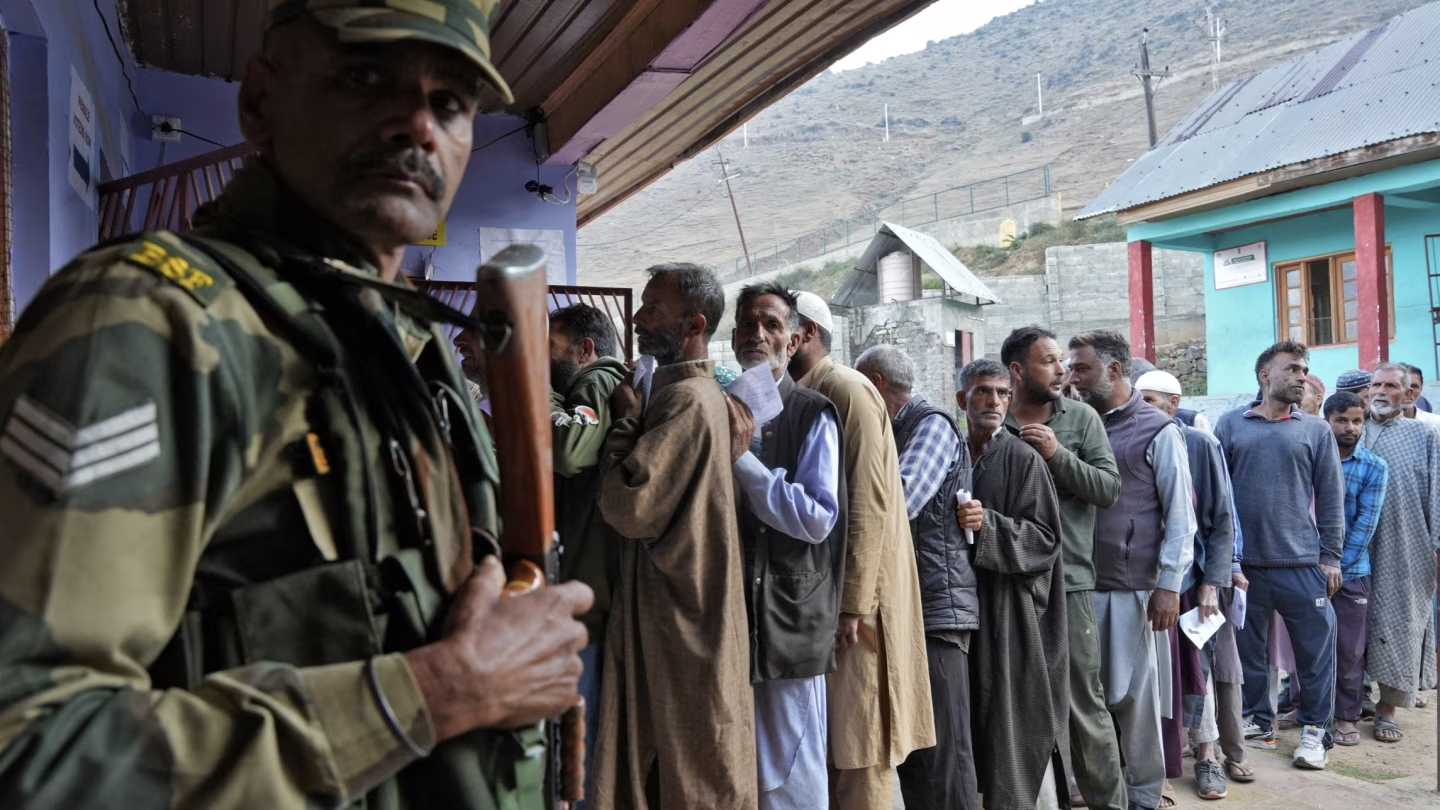For the first time in 10 years elections have taken place in the Jammu and Kashmir Legislative Assembly in the Indian union territories bordering Pakistan.

Peaceful integration into the Indian federation
After India gained independence in 1947 and subsequently joined the Union of the former princely state of Jammu and Kashmir, the situation in the region remained difficult and unstable for decades, primarily due to the weak positions of the central ruling Indian National Congress (INC) party there and the dominance of the local influential Jammu and Kashmir National Conference (JKNC) party in Kashmir. Its founder and head of the state government for many years, Sheikh Abdullah, was in constant conflict with the Centre and the leaders of the INC. The Bharatiya Janata Party (BJP), the currently ruling party in India, has only significantly strengthened its position in this region in recent years (especially in Jammu), however yielding influence to JKNC and INC in Kashmir.
Why the government decided to change the status of the state
Due to the chronic political instability in Jammu and Kashmir, outbreaks of terrorist activity and the problematic nature of the relationship between the Centre and this state, the BJP government led by Narendra Modi took an unprecedented step by repealing Article 370 of the Indian constitution in August, 2019, which gave the state of Jammu and Kashmir a special status.
As a result of this, only two provinces remained in the new union territory created instead of the state: Jammu, with a predominantly Hindu population, and Kashmir, with a Muslim majority. The third province of Ladakh, which was also part of the former state and has Hindu and Buddhist populations, was transformed into a new union territory separate from Jammu and Kashmir. This decision of the Centre to lower the administrative status of Jammu and Kashmir caused a negative reaction from its Muslim majority and the discontent of neighbouring Pakistan, which occupied part of the territory of Kashmir as a result of conflict with India in 1947.
The situation in the state is returning to normal
The next stage of the transformation of this region was the decision of the Centre to hold long-awaited elections to the local parliament in the new union territory, which had not been held there for almost 10 years. During the last elections in this state at the end of 2014, none of the key political forces were able to independently gain a majority of seats in the Legislative Assembly. In this state, the government of the National Conference, headed by Omar Abdullah, the son of party chairman Farook Abdullah, was replaced by a coalition of the People’s Democratic Party (PDP) and the BJP, which broke away from the INC. The leader of the PDP, Mufti Mohammed Sayeed, a well-known congressman in the past, became the new top minister. However, this coalition government collapsed in 2018 because of serious disagreements between its two members, the PDP and the BJP and since 2018 the state has been under presidential (central) rule.
Thus, elections in Jammu and Kashmir were held 10 years later in three stages of voting, which ended on October 1 this year. The results of the elections were announced only on October 8. This time, the National Conference, the oldest and most influential in the region, entered into an electoral alliance with the INC, which was opposed by the BJP and the PDP, who presented themselves separately, as they could not agree on the distribution of seats.
As a result of the vote count, the JKNC-INC alliance won, gaining 49 of 90 seats in the legislative assembly. JKNC leader Omar Abdullah is tasked with forming a coalition government, which will likely support the PDP, which only managed to push three deputies through instead of 28 in the 2014 elections. N. Modi’s BJP party improved its position, primarily in Jammu, gaining 29 parliamentary seats (in 2014 the number was 25), thus ceding power to the JKNC-INC union.
This victory – first of all of the local pro-Muslim JKNC party, which independently won the largest number of seats in the legislative assembly (43) – was expected and shows the growing influence of Muslim nationalist forces (primarily in Kashmir) and the inability of the ruling BJP party in the Centre to strengthen its position beyond Jammu, that has a predominantly Hindu population.
The BJP’s defeat in the elections in Jammu and Kashmir was compensated by its new election victory in the neighbouring state of Haryana. The ruling party still heads local governments in most states of India. The authority of the BJP and personally of Prime Minister Narendra Modi in the country remains quite high, although the INC and influential regional parties continue to strengthen their positions.
Anvar Azimov, Ambassador Extraordinary and Plenipotentiary, Senior Scientific Researcher at the Moscow State University of Foreign Affairs (MGIMO), exclusively for the online magazine «New Eastern Outlook»
